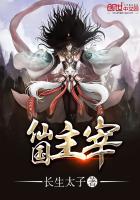He wanders on from one topic to another, careless of the unity of his work, not fearing any 'judge, or spectator, who may recall him to the point' (Theat.), 'whither the argument blows we follow' (Rep.). To have determined beforehand, as in a modern didactic treatise, the nature and limits of the subject, would have been fatal to the spirit of enquiry or discovery, which is the soul of the dialogue...These remarks are applicable to nearly all the works of Plato, but to the Cratylus and Phaedrus more than any others. See Phaedrus, Introduction.
There is another aspect under which some of the dialogues of Plato may be more truly viewed:--they are dramatic sketches of an argument. We have found that in the Lysis, Charmides, Laches, Protagoras, Meno, we arrived at no conclusion--the different sides of the argument were personified in the different speakers; but the victory was not distinctly attributed to any of them, nor the truth wholly the property of any. And in the Cratylus we have no reason to assume that Socrates is either wholly right or wholly wrong, or that Plato, though he evidently inclines to him, had any other aim than that of personifying, in the characters of Hermogenes, Socrates, and Cratylus, the three theories of language which are respectively maintained by them.
The two subordinate persons of the dialogue, Hermogenes and Cratylus, are at the opposite poles of the argument. But after a while the disciple of the Sophist and the follower of Heracleitus are found to be not so far removed from one another as at first sight appeared; and both show an inclination to accept the third view which Socrates interposes between them. First, Hermogenes, the poor brother of the rich Callias, expounds the doctrine that names are conventional; like the names of slaves, they may be given and altered at pleasure. This is one of those principles which, whether applied to society or language, explains everything and nothing. For in all things there is an element of convention; but the admission of this does not help us to understand the rational ground or basis in human nature on which the convention proceeds. Socrates first of all intimates to Hermogenes that his view of language is only a part of a sophistical whole, and ultimately tends to abolish the distinction between truth and falsehood. Hermogenes is very ready to throw aside the sophistical tenet, and listens with a sort of half admiration, half belief, to the speculations of Socrates.
Cratylus is of opinion that a name is either a true name or not a name at all. He is unable to conceive of degrees of imitation; a word is either the perfect expression of a thing, or a mere inarticulate sound (a fallacy which is still prevalent among theorizers about the origin of language).
He is at once a philosopher and a sophist; for while wanting to rest language on an immutable basis, he would deny the possibility of falsehood.
He is inclined to derive all truth from language, and in language he sees reflected the philosophy of Heracleitus. His views are not like those of Hermogenes, hastily taken up, but are said to be the result of mature consideration, although he is described as still a young man. With a tenacity characteristic of the Heracleitean philosophers, he clings to the doctrine of the flux. (Compare Theaet.) Of the real Cratylus we know nothing, except that he is recorded by Aristotle to have been the friend or teacher of Plato; nor have we any proof that he resembled the likeness of him in Plato any more than the Critias of Plato is like the real Critias, or the Euthyphro in this dialogue like the other Euthyphro, the diviner, in the dialogue which is called after him.
Between these two extremes, which have both of them a sophistical character, the view of Socrates is introduced, which is in a manner the union of the two. Language is conventional and also natural, and the true conventional-natural is the rational. It is a work not of chance, but of art; the dialectician is the artificer of words, and the legislator gives authority to them. They are the expressions or imitations in sound of things. In a sense, Cratylus is right in saying that things have by nature names; for nature is not opposed either to art or to law. But vocal imitation, like any other copy, may be imperfectly executed; and in this way an element of chance or convention enters in. There is much which is accidental or exceptional in language. Some words have had their original meaning so obscured, that they require to be helped out by convention. But still the true name is that which has a natural meaning. Thus nature, art, chance, all combine in the formation of language. And the three views respectively propounded by Hermogenes, Socrates, Cratylus, may be described as the conventional, the artificial or rational, and the natural. The view of Socrates is the meeting-point of the other two, just as conceptualism is the meeting-point of nominalism and realism.















